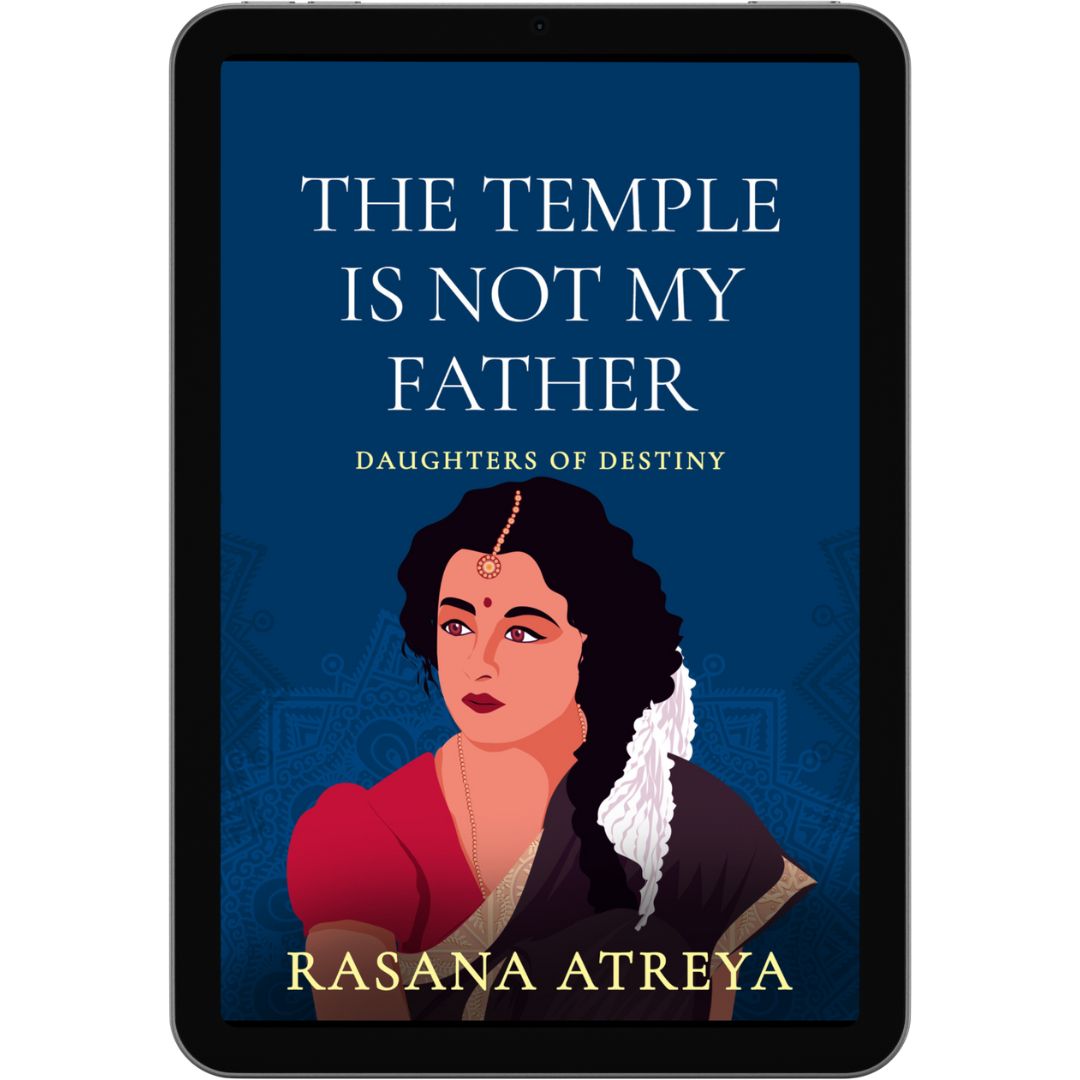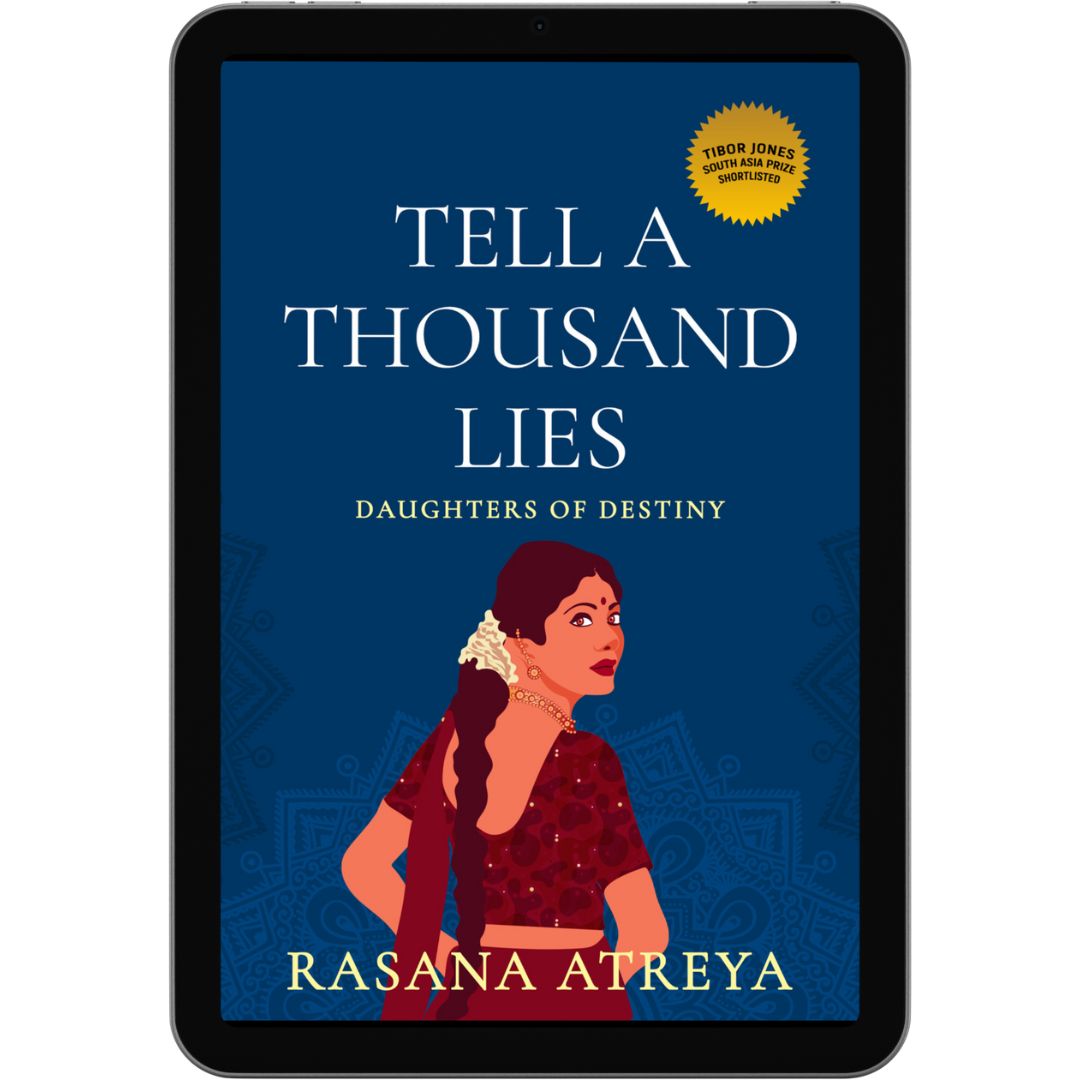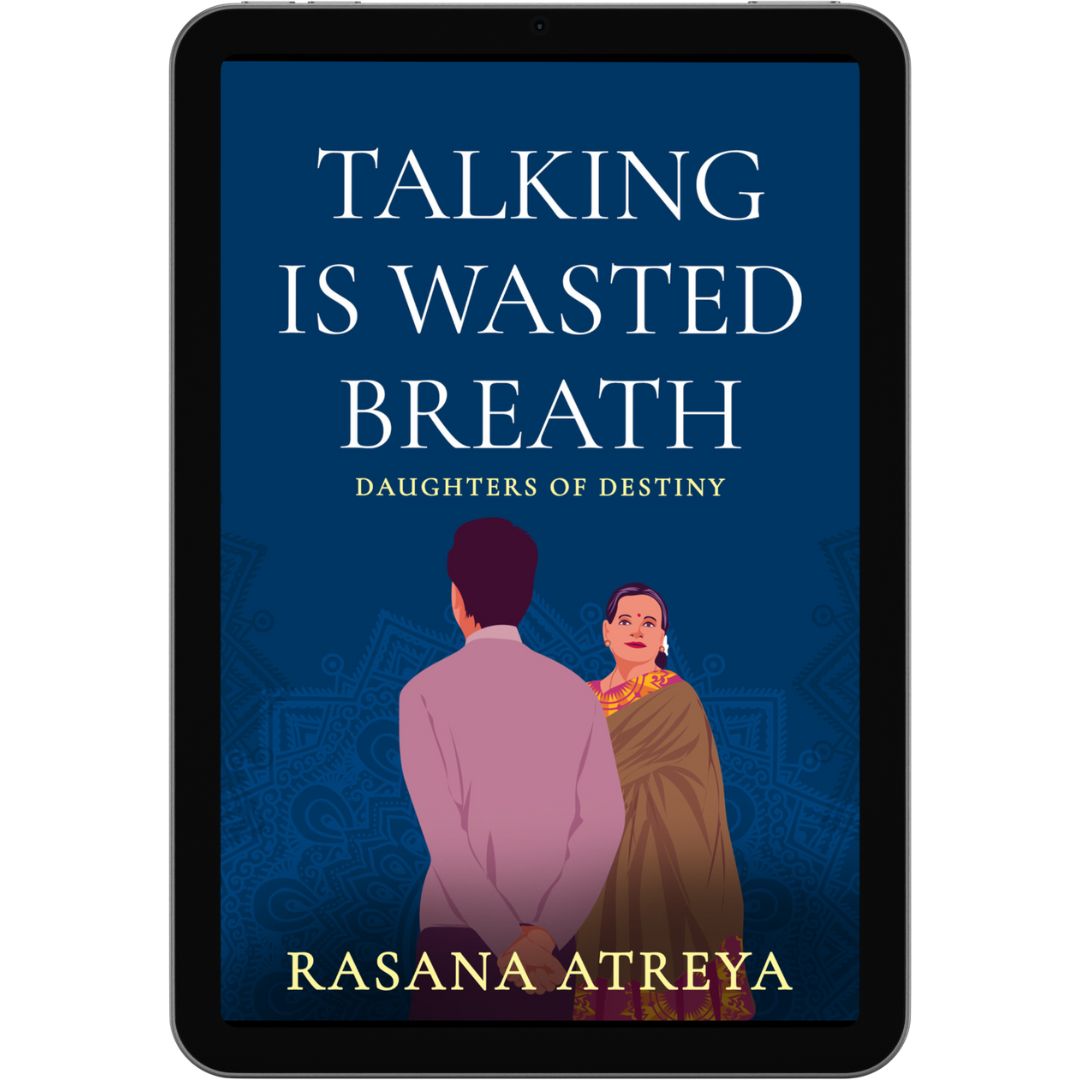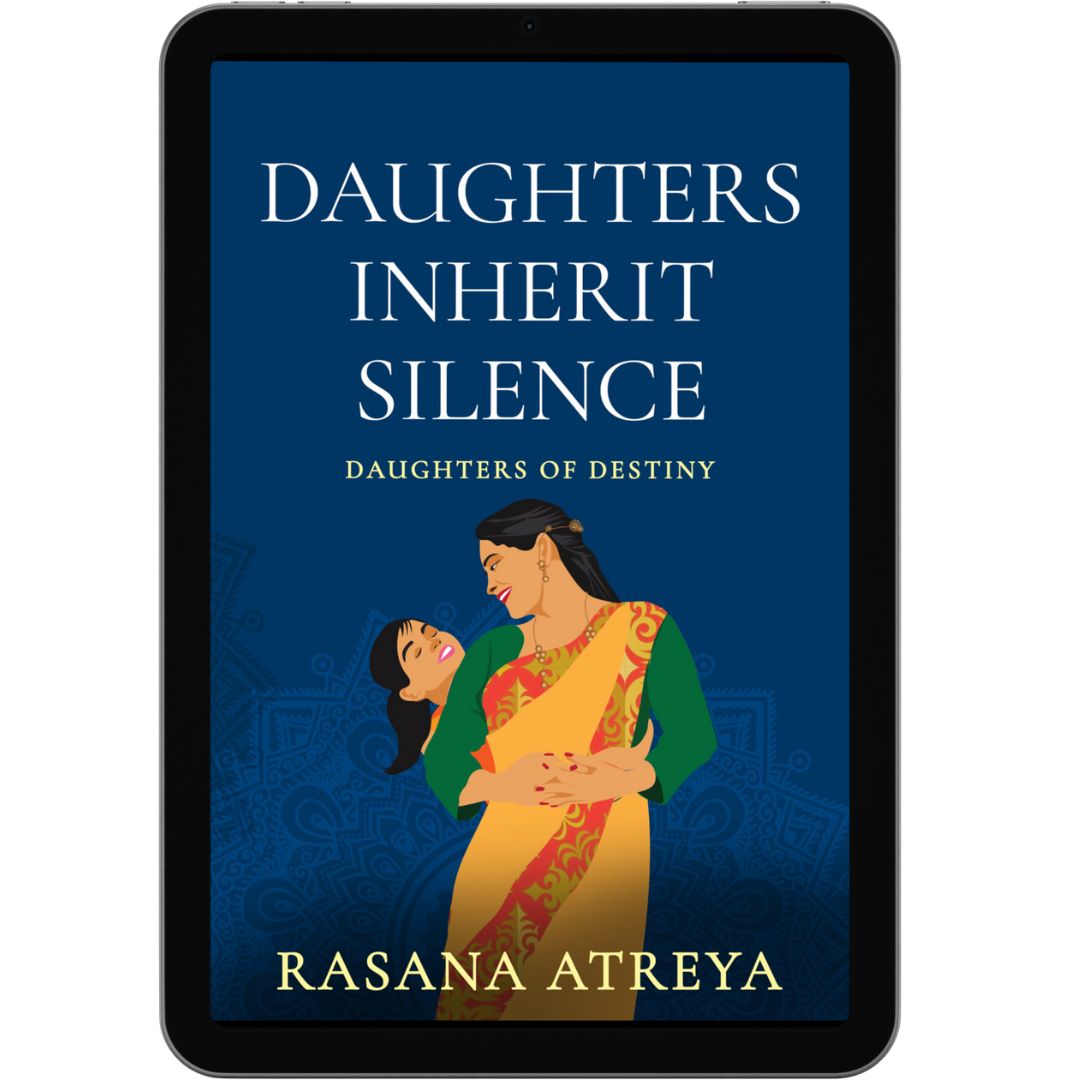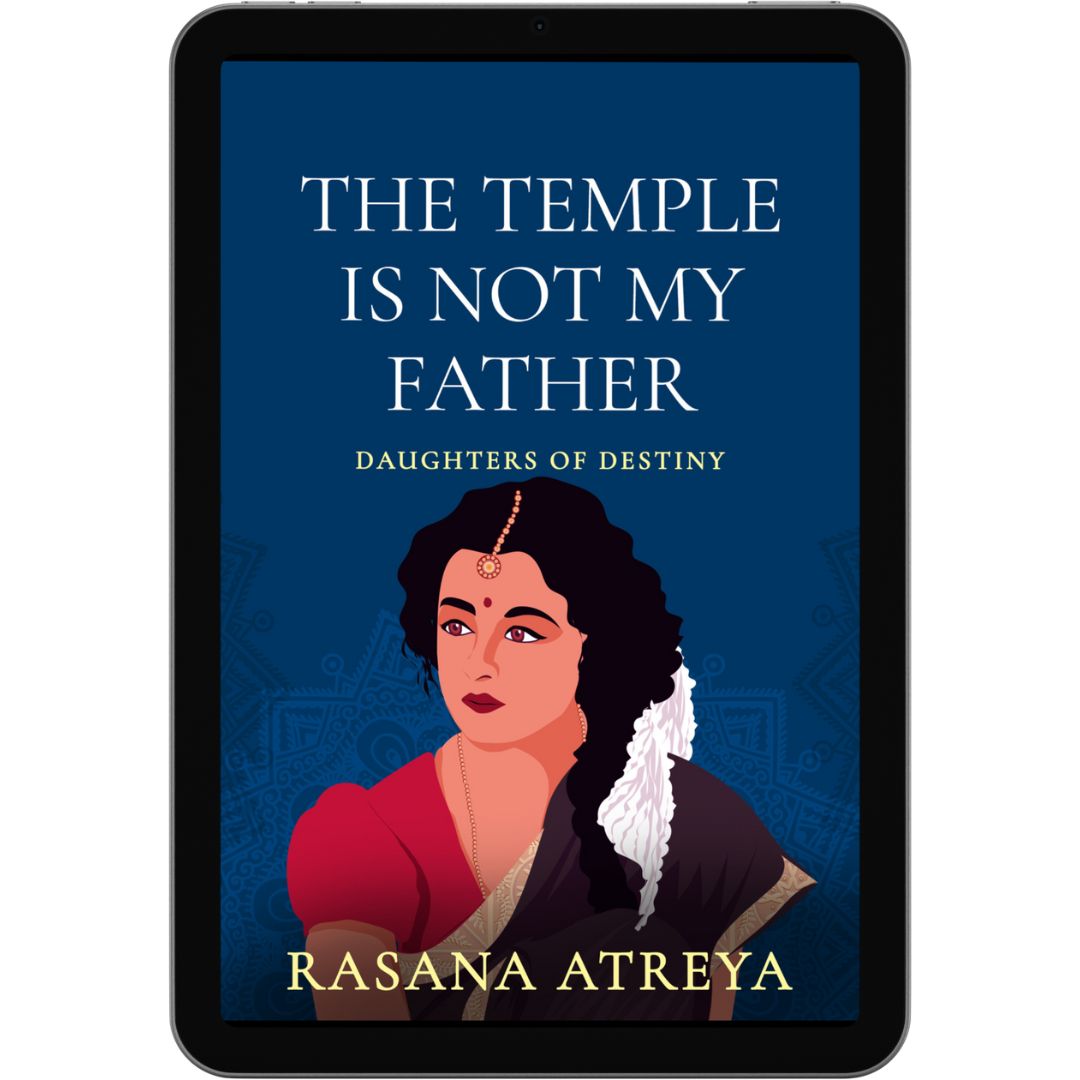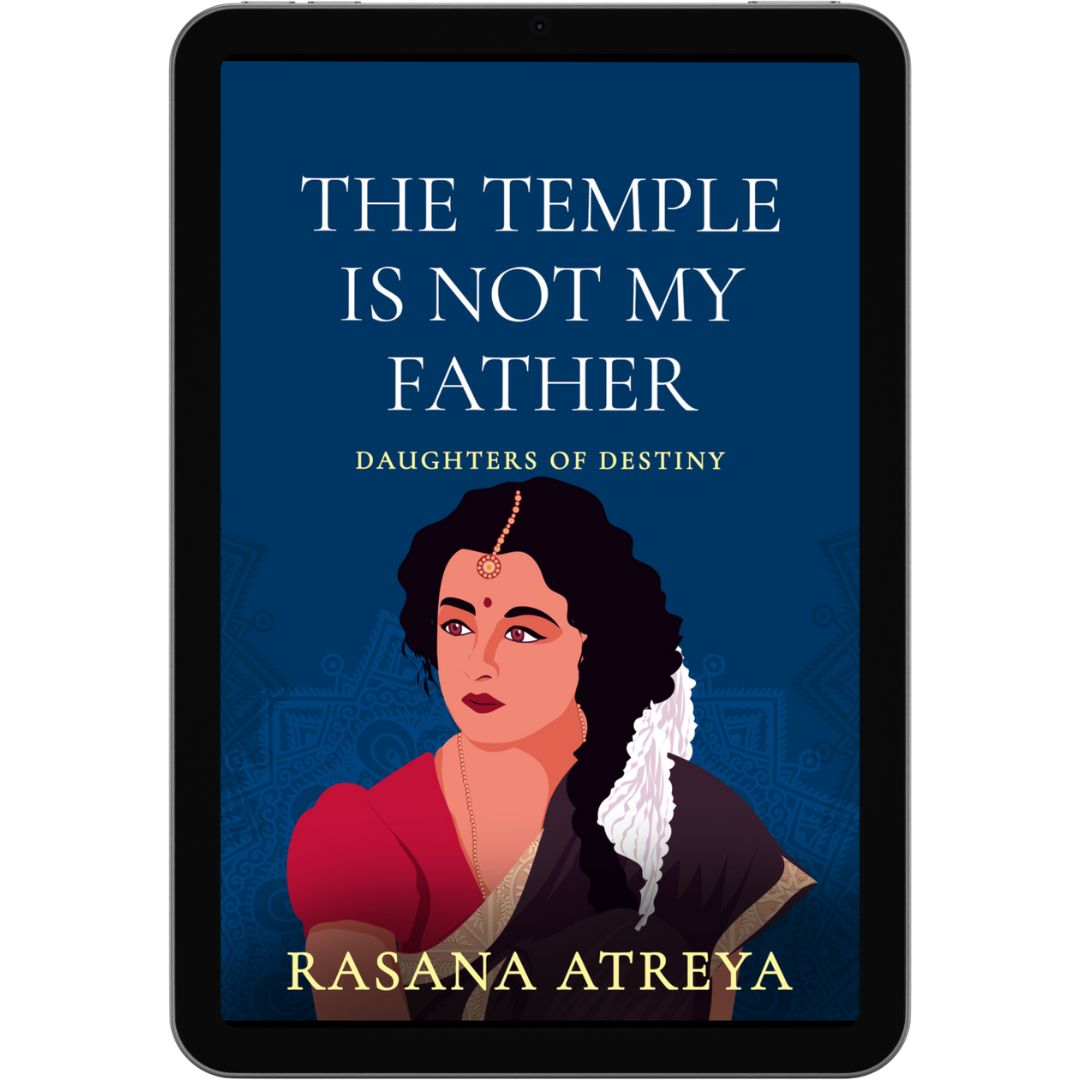Part One
Chapter One
“Is the Goddess your husband, Amma?”
Godavari smiled at her young daughter. “No, she’s not.”
“But you’re married to her.”
Godavari nodded. Years ago, when she still believed in goodness and decency and all that foolishness, her father had dressed her in bridal finery and walked her through the streets of their village. She had skipped along, feeling important and pretty in her brand-new clothes. It wasn’t every day that a girl got married—and to the Goddess herself!
The only irritant was Godavari’s own mother. She followed them, wailing and beating her chest, grabbing her husband’s arm every once in a while, falling at his feet, making a complete nuisance of herself.
Why couldn’t her mother understand that this was an honour, something bestowed upon only a chosen few? Why did she have to ruin everything special that Godavari’s father tried to do for her? Godavari forced a grin on her face, trying to ignore her mother’s embarrassing behaviour.
But her mother only wailed harder.
Godavari entwined her fingers with her father’s, swinging his hand as high as it would go. She called out to the villagers lining the road to the temple, but the men clapped their hands to their mouths, and the women hid their faces behind their saris.
Meanwhile, Godavari’s mother continued with her wailing.
“Amma?” Sreeja asked, snapping Godavari back from the past. “When did you get married?”
Godavari leaned back against the trunk of the scrawny guava tree and sighed. “A long time ago.” In their tiny enclosed courtyard, with its packed-mud floor and its ten-foot-high cow-dung-coated walls, the narrow metal built-in gate their only access to the world outside, she pondered her life.
Though the high walls kept the world out, it also caged the two of them in. But it was important that she remember that no matter how small the house—front room, bathroom, bedroom, kitchen—all interconnected and opening into their minuscule courtyard, it was hers, and hers alone. And, no matter how hard her life, she was so much better off than other women in her situation.
“Is the temple my father?”
Startled, Godavari laughed. “What gave you that idea?”
“You’re married to it.”
“No, the temple is not your father.”
Sreeja twirled her braid with a finger. She seemed to be in deep thought. “You’re married to two things. How can that be?”
Godavari lifted Sreeja onto her lap, savouring her little-girl smell. “I was dedicated to Goddess Yellamma. Some people call that being married to the Goddess. Others call it being married to the temple.”
“That’s a good thing, isn’t it?”
Was it? A long time ago, being married to the Goddess was indeed an honour. This was back when classical dance and music were an integral part of temple worship. Then, women like her enjoyed a high status in society.
“Amma?” Sreeja prodded.
“Yes, it’s a good thing.”
“Then why do the villagers make faces when they say it?” A tear, perfectly formed, teetered at the edge of one of Sreeja’s beautiful brown eyes.
“Oh, child!” Godavari pulled Sreeja closer, her heart overflowing with love for this child of hers. Soon, too soon, she’d be old enough to know what those taunts meant.
Sreeja buried her face in her mother’s shoulder.
“Everyone else has a father at home. How come we don’t?”
Godavari ran a loving hand over her daughter’s hair. “You have a grandfather who loves you.”
“But he’s not my father.”
She should have seen this coming. She should have been prepared with an answer.
“I do have one.” The child looked up at her mother. “Don’t I?”
The cautious, hopeful tone of her daughter broke Godavari’s heart anew. She was married to the temple, but it wasn’t the temple that had put the baby in her belly.
“What’s his name?”
“I don’t know,” Godavari said softly.
Sreeja whimpered in distress.
Godavari hated the lies, but what choice did she have?
She wrapped the free edge of her sari around them both and buried her face in Sreeja’s hair, wishing there was some way she could protect her child from the pain and stigma that were headed her way, as surely as the village chief’s filthy eyes defiled Godavari each time she had the misfortune to cross paths with him.
Sreeja raised her head. Using the back of her hand to wipe away the tear, she looked into her mother’s eyes. “How come you have no wedding photos?”
Because her wedding had been no wedding.
“Your grandfather forgot the camera,” Godavari said.
More lies. But why should her young daughter have to experience disillusionment at such a tender age?
Knock! Knock!
Pleasure replaced the pain in Sreeja’s eyes. “Tataiyya?”
Godavari nodded. Other than her father, no one ever knocked on her door. Not in broad daylight, that is.
Sreeja jumped down from her mother’s lap.
Godavari watched as the little girl pranced her way to the door. Soon her playfulness would vanish; soon her innocence would be swallowed by the grim reality that was life.
“Tataiyya!” Sreeja jumped on her grandfather, almost knocking him to the ground.
“You and I both,” Godavari’s father said, laughing, “are getting too old for this.”
“You're not old.” She wrapped her legs around his waist and leaned back, squinting. “Are you?”
Godavari’s father laughed again. “I am a grandfather; therefore, I’m old.”
“Sreeja, child, let Tataiyya breathe,” her mother said.
Sreeja unwrapped her legs and slid down. “What did you get me?” She thrust her hands in the pockets of his long, flowing kurta and came away empty. “No gift?” Tears hovered. “But it’ll be my birthday in three days! I’ll be eight years old! You said you’d get me something special from the city. You promised!”
“Silly girl,” Tataiyya said, tweaking her nose. “Close your eyes.” He wagged a finger at her. “No peeking.”
Sreeja closed her eyes tightly. “Hurry up, Tataiyya.”
Godavari smiled as her daughter danced on one foot, then the other, unable to bear the suspense.
Sreeja splayed her hands against her face and slowly opened an eye—and looked into the grinning face of her grandfather. “What is it? What is it?”
“Where’s my kiss?” he demanded, waving a package just out of reach.
Sreeja planted a smack on his cheek and grabbed the package. Falling on the straw mat under the tree, she tore the packet open. A shiny fabric of the smoothest silk fell out. “New clothes!”
“Wear it and show me.”
Sreeja shook the dress open. A full-length skirt, a midriff-length sari blouse, a long piece of silk. Throwing the skirt and blouse aside, she draped the silk around herself in an approximation of a sari. She rooted around for the matching bangles and slid them on. A bright bottu on her forehead, new hair clips on the sides of her braids, and she was ready.
“Amma!” She twirled around, a wide smile on her chubby little face. “Don’t I look pretty?”
“You’re the most beautiful girl I’ve ever seen.” Godavari smiled at her daughter’s exuberance.
“Here’s something else for you!” He gave Godavari a quick look before digging into his cloth shoulder-bag.
Godavari watched as her father’s hand emerged from the bag, one inch at a time. Her eyes spotted a shell. Her belly tightened. He wouldn’t dare!
Slowly, very slowly, his hand emerged. In it was a distinctive piece of jewellery, white and delicate.
Voice harsh, she said, “What’s the meaning of this?”
“What do you mean?” he stammered. “It’s a pretty dress for my pretty little granddaughter.”
“Not the dress. That.” She threw her head in the direction of the white cowrie-shell necklace.
“Amma!” Sreeja tugged at her mother's hand, looking small and scared.
Godavari gave her a reassuring pat before turning back to her father.
He wouldn’t look her in the eye. “I thought that, perhaps, it was time…”
She tore the jewellery from his grasp and hurled it against the dung-coated wall of her courtyard with a satisfying thwack. It shattered into tiny little pieces. When she turned to her father, she was breathing heavily. “Get out of my house!”
“But—”
“Out!”
He stalked out, slamming the gate behind him.
“Amma!” Sreeja tugged at Godavari’s hand.
Godavari knelt and drew the trembling girl into her arms. “What, child?”
“Now, we don’t have a grandfather, either?”
Godavari wrapped her arms around her daughter and carried her to the cot by the guava tree. She ran a hand over her daughter’s back in gentle circles, trying to find a way to tell her—tell her what? That her grandfather was a slimy, slithering snake of the worst kind?
Sreeja looked up at her mother, her beautiful eyes wounded. “Tataiyya never hurt us. He made us laugh. Why did you send him away?”
Because the distinctive white-shell jewellery he’d brought for his loving, trusting, innocent granddaughter was the mark of the devadasi. The bastard wanted to dedicate her to the Goddess!
Godavari shook her head, trying to clear it of the outrage. “Because he did something bad.”
“What did he do?”
She kissed her child’s forehead. “Someday you’ll understand,” she said.
“And I hope that day is far, far away,” she whispered.
